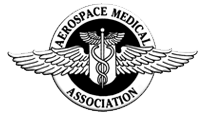Melatonin is a hormone secreted by the pineal gland and may be used to regulate sleep. Some research shows it may prevent Alzheimer’s Disease. Melatonin is approved by the FAA on a case by case basis.
Pilots without “sleep disorders” using melatonin must take it daily and the dosage should be 3-5 mg.
Melatonin Shows Promise in Alzheimer’s Disease
WASHINGTON, Dec. 11, PRNewswire — Melatonin, a widely used naturally occurring hormone used to treat insomnia and jet lag, reverses the formation of a protein complex that is a hallmark of Alzheimer’s disease, report researchers in the December 11, 2001 issue of the journal, “Biochemistry,” published by the American Chemical Society.
The findings of the study conducted by Dr. Miguel Pappolla of the USA Medical Center and the University of South Alabama, and associates from New York University, Case Western Reserve University and the Indiana University School of Medicine, are based upon animal and human cell culture studies. “Our results clearly demonstrate the ability of melatonin to inhibit the process of forming the ‘signature’ amyloid protein bundles seen in Alzheimer’s disease (AD),” said Pappolla. In AD, toxic fibrillar aggregates of a protein called amyloid beta protein are the pathologic landmark of the disease. “What is equally intriguing is that persons with AD also show remarkably lower concentrations of melatonin in their brains,” he added.
In the current study melatonin was added to solutions containing the building blocks of the abnormal brain amyloid fibrils along with an additional protein associated with AD, human apoE. Melatonin inhibited the formation of amyloid beta, which is toxic to nerve cells, in the experiments performed. Because melatonin has antioxidant actions its inhibitory effects were compared to other antioxidants like vitamins C and E, and a synthetic antioxidant. All were without effect. Additionally, a naturally occurring brain chemical very similar to melatonin was evaluated and it, too, lacked inhibitory activity.
“This activity attributed to the ‘indole’ structure of melatonin appears to be specific,” added Dr. Pappolla. “We also observed melatonin completely preventing neurotoxicity to human nerve cells exposed to amyloid Beta.”
“These exciting findings, however, mandate much more research before we can convincingly state melatonin can halt or prevent Alzheimer’s disease,” he concluded.
“The use of dietary supplements to promote brain function is an exciting aspect of the growing field of nutritional neuroscience,” noted Dr. Jeffrey Blumberg, Professor of Nutrition at Tufts University and Scientific Advisory Board member to the Dietary Supplement Education Alliance(TM), “and these findings from basic research suggest practical applications may not be too far away.”
The study was supported by a grant from the National Institute on Aging.
This information is provided by the Dietary Supplement Information Bureau (TM) in partnership with IMAGINutrition, Inc. IMAGINutrition is a nutrition technology innovation and research think tank based in Laguna Niguel, CA. IMAGINutrition collaborates with academic research centers on clinical trials using dietary supplements and regularly collects, analyzes, and disseminates the latest research on dietary supplements through its proprietary information database system, BioActiva(TM).
The Dietary Supplement Information Bureau(TM) is a project of the Dietary Supplement Education Alliance(TM), an industry coalition created to promote the health benefits and responsible use of vitamins, minerals, herbs and specialty supplements. A scientific advisory board oversees the development and dissemination of the information.
The DSEA(TM) steering committee includes the following organizations: American Herbal Products Association, Corporate Alliance for Integrative Medicine, National Nutritional Foods Association, New Hope Natural Media/Penton Media, Inc., and Virgo Publishing Inc. Additionally, over 100 organizations and industry leaders are supporting the DSEA(TM) effort including Fruitful Yield, Intramedicine, Inc., Natrol, Inc., Weider Nutrition International and United Natural Foods, Inc.
2001/12/31 Richters HerbLetter
We can help!
We work directly with your physicians and the FAA to assure compliance with FAA medical protocols and to resolve complex aeromedical certification issues quickly.
Contact us at 405-787-0303 or via E-Mail to confidentially discuss the details of your case and to establish your eligibility for FAA medical certification.
There is no charge for an initial consultation.



